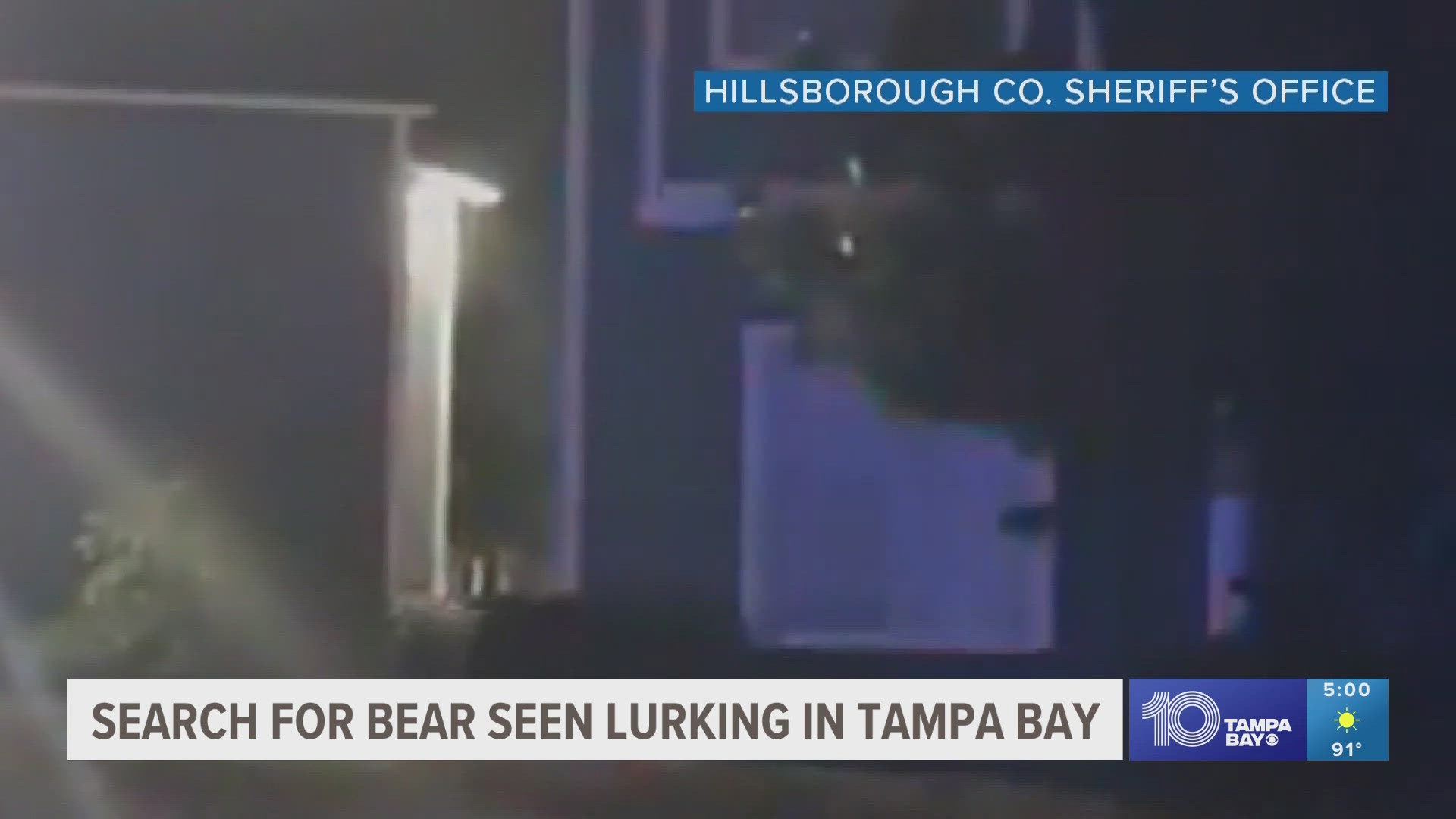CARROLLWOOD, Fla. — Florida wildlife officials said that a bear spotted roaming Hillsborough County over the weekend has not been captured as of Monday evening.
It was recently seen in the South Carrollwood area, near North Himes Avenue and West Kenyon Avenue, close to the northern portion of Egypt Lake-Leto.
Florida Wildlife Conservation Commission (FWC) was patrolling the area on Monday in search of the black bear. It's the third day the commission has been trying to track down the animal across Hillsborough County.
"Our bear biologist is aware of a bear in the area and is currently monitoring and tracking the information," an FWC public information officer shared.
FWC says there was a 33% spike in wildlife calls in recent years. The number of calls grew from 10,575 during the 2018-2019 fiscal year to 14,184 during the 2022-2023 fiscal year.
"Calls to the FWC’s Wildlife Assistance Program can be related to a wide variety of species including but not limited to bears, coyotes, raccoons, bobcats, foxes, bats, raptors (hawks and owls), and snakes. Some of the most common calls to the FWC’s Wildlife Assistance Program include reports of wildlife getting into trash cans, property damage, and sightings of wildlife in suburban and urban areas," FWC explained via email.
"As Florida’s population continues to increase, the number of interactions between people and wildlife also increase. FWC staff continue to focus on education and outreach as the primary ways in which to help prevent and mitigate human-wildlife conflicts. Targeted messaging via social media platforms and digital advertising campaigns will continue to be a tool used to send species-specific information to communities experiencing commonly reported activity or conflicts. In recent years, the Program has increased efforts to make people aware that Wildlife Assistance Biologists are available to provide information about methods to prevent human-wildlife conflicts."
RELATED: Floridians could kill black bears when threatened at home under a bill ready for House vote
Wildlife sightings are not uncommon in developed areas and although sightings occur, they are not an immediate concern for wildlife welfare or public safety. Removing attractants is one of the most effective things people can do to help prevent conflicts with wildlife:
- Avoid attracting unintended visitors into your yard by securing your trash, feeding pets inside, cleaning grills, and picking up any fallen fruit or bird seed from the yard.
- Close off any crawl spaces under porches and sheds to prevent wildlife from resting or denning there.
- Do not allow pets to free range or interact with wildlife - keep cats indoors and walk dogs on leashes.
- Encourage your neighbors to do the same.
- Wild animals that associate places where people live as an easy place to find food may gradually lose their natural fear of humans. More information about securing attractants can be found at MyFWC.com.
Malique Rankin is a general assignment reporter with 10 Tampa Bay. You can email her story ideas at mrankin@10tampabay.com and follow her Facebook, X, and Instagram pages.

